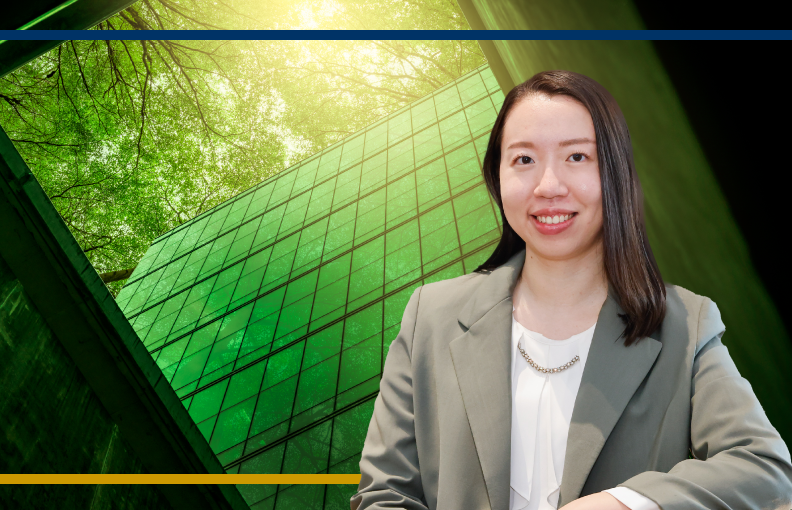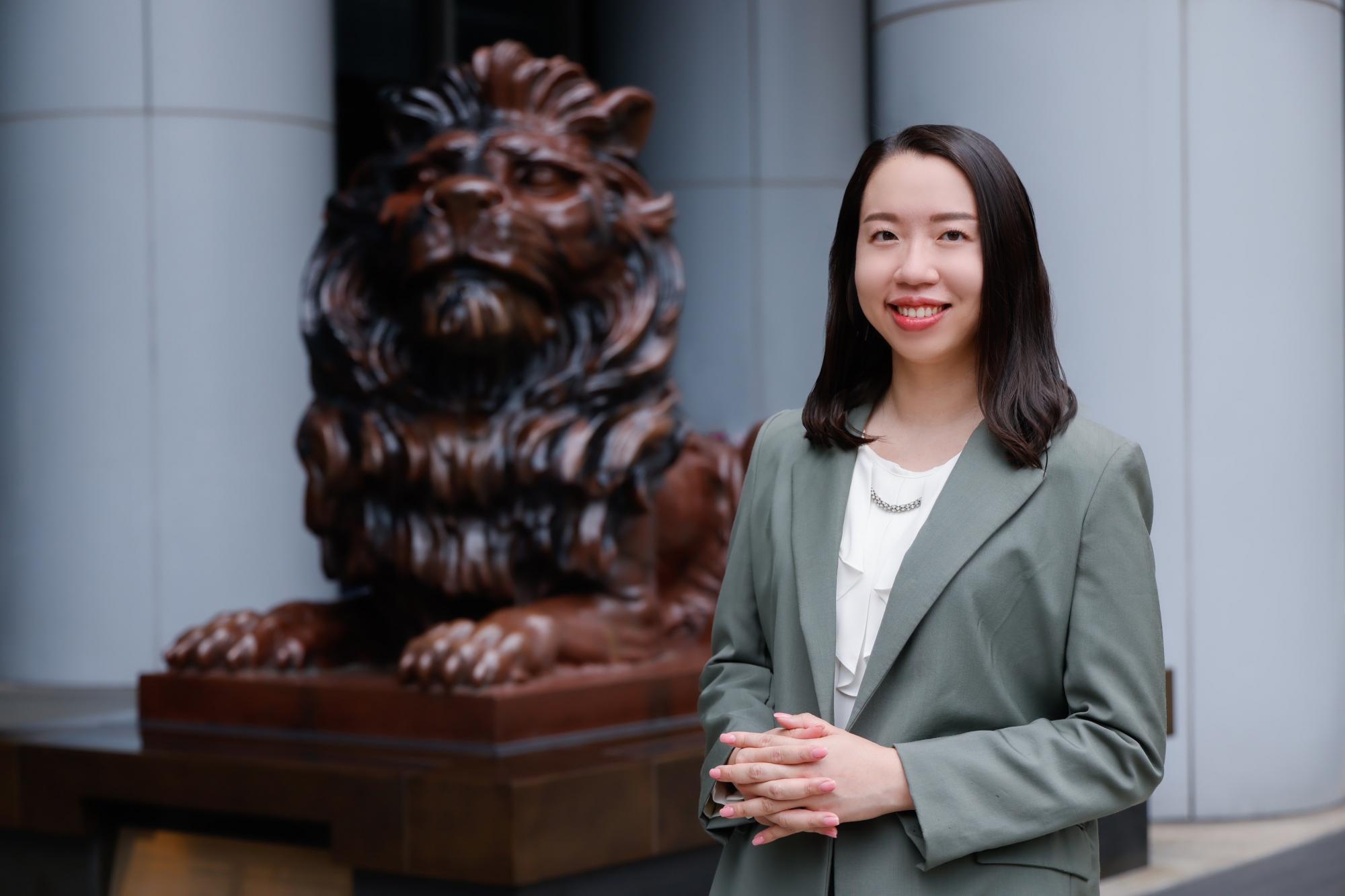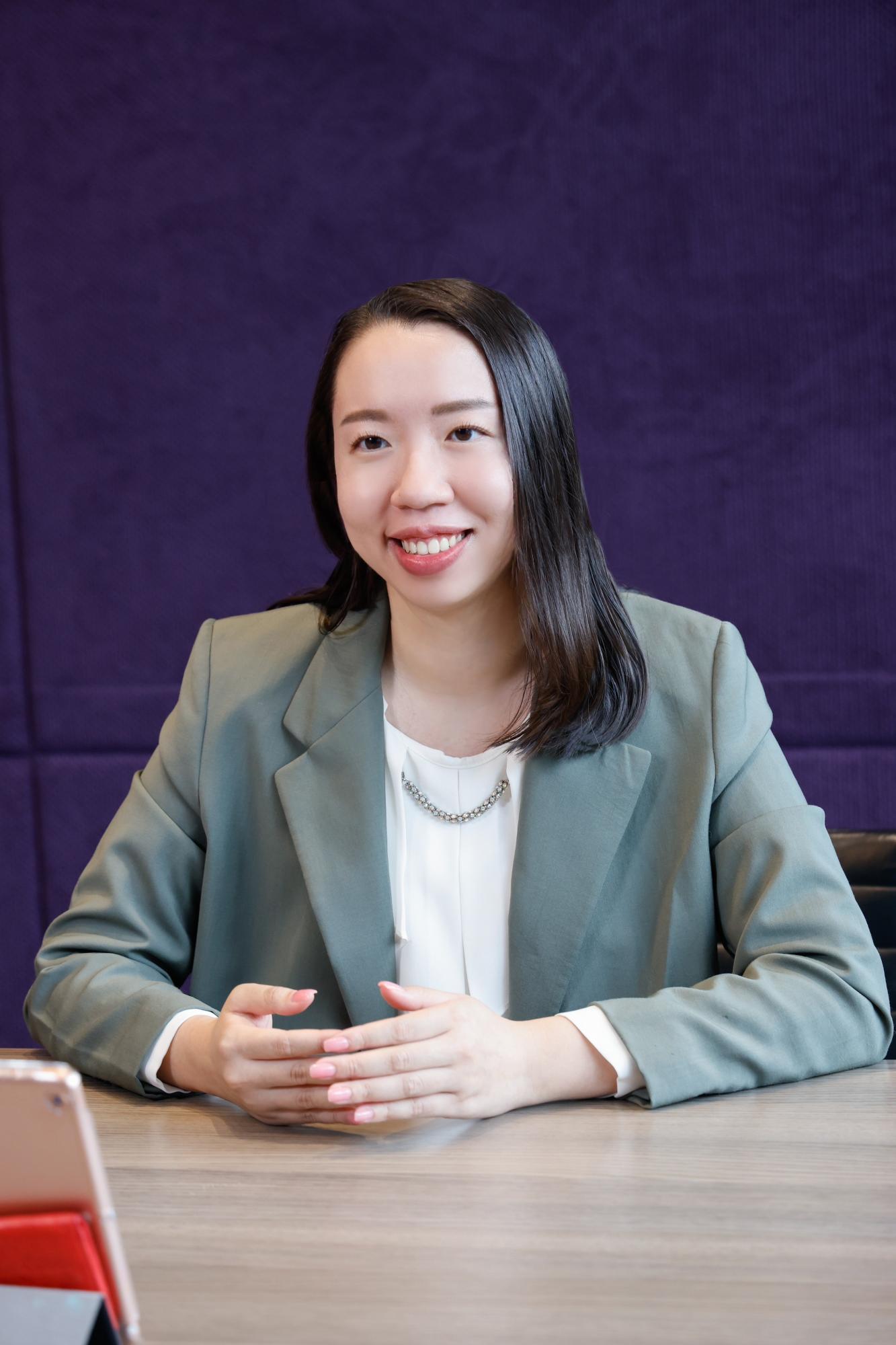Soaring at the Speed of Sustainability

PREFACE – Karis CHOI, a graduate of BSc in Economics and Finance (2015), talks about her career growth in ESG (environmental, social, and governance) and the positive impacts of working in sustainability initiatives.
“If I go on holiday for a week, I’ll fall behind the latest market developments,” says Karis Choi, highlighting the rapid pace of technological advancement and regulatory changes in the sustainability landscape from HSBC’s headquarters in Hong Kong.
Karis was introduced to sustainable finance shortly after launching her career at HSBC. Working within the investment banking division, she took the initiative to explore a new career path in sustainable finance as the green bond market surged between 2015 and 2016. At the time, she covered clients in the power, utilities, and real estate sectors, which became early green bond issuers in Asia. Since then, Karis has led numerous landmark transactions, including the Hong Kong Government’s Green Bonds and Indonesia’s Green Sukuks and SDG Bonds.
Today, as Vice President of HSBC’s Global Banking ESG Solutions team, Karis helps clients integrate ESG in equity, debt, and private market transactions. Spearheading sustainable strategies and solutions for corporates, financial institutions, and government bodies, Karis also facilitates access to capital and unlock sustainability’s value-driving potential for clients. Additionally, she advocates for gender diversity in finance as the Co-vice Chair of HSBC’s regional Women in Banking initiative in Global Banking Asia.

Getting Ready for Sustainability
During her undergraduate years at HKUST, Karis majored in economics and finance. Reminiscing about her student days, she now sees numerous parallels between her university experience and at her career in finance. In classes, Karis honed her ability to swiftly analyze complex business cases and present viable solutions under tight deadlines. “The constantly evolving nature of sustainability always challenges my resourcefulness and creativity,” she notes. “There are no definitive answers to the opportunities and challenges my clients face, so it forces me to think creatively.”
Beyond adapting to the pace of the industry, Karis’ education instilled in her the capacity to ask incisive questions and think critically. Learning to collaborate productively with her peers also emerged as a crucial lesson, allowing her to navigate complex issues and stakeholder interests. “There is no precedent when pioneering new sustainable finance structures like the first government tokenized green bond or the first sustainable exchangeable bond. But what’s great about sustainability is you are surrounded by intelligent and driven professionals across disciplines, brought together for a common purpose,” she reflects.
The Synergy of Responsible Investing
With a growing focus on responsible investing among investors – especially for those with long-term investment horizons measured in centuries, there is substantial demand for quality responsible investments. While some believe that sustainability goals may clash with short-term financial objectives, Karis argues that sustainability is essential for business success as it affects both top and bottom lines. “Businesses investing in renewable energy have shown resilience to energy price hikes during shortages. Enhanced job satisfaction and employee engagement further boost productivity and reduce turnover rates,” she explains. “Consequently, regulators and investors are urging businesses to consider the impact of sustainability-related risks and opportunities on their financial position, performance, and cashflow, and integrate these considerations into their financial planning. These opportunities allow businesses to leverage sustainability as a value driver, potentially leading to higher valuations and increased investor demand for quality assets.”
Additionally, Karis also observes how sustainability can act as a unifying force within organizations. She often finds inspiration in how sustainability initiatives can bring together different stakeholders, promoting cross-functional partnerships. In a recent client project, Karis’ team collaborated with the treasury, operations, and sustainability teams – functions that don’t typically interact with each other. Through their collective efforts, they uncovered opportunities to improve the client’s profitability through efficiency savings measures and strategies to reduce carbon footprint and operating costs. “Economic and technical innovation are essential to how we drive the transition. These projects require global partnerships at all levels to help channel investments swiftly towards viable solutions and sustainable projects,” she says.
Sustainability is Lifelong Learning

Like many sustainability professionals, Karis often seeks valuable insights and guidance from her mentors and network. But she also stresses the importance of bridging generation gaps and learning from both younger and seasoned individuals. Through a reverse mentoring program at HKUST, Karis gained valuable insights and new perspectives from her mentee, who was already an established professional and senior management of a multinational conglomerate, and they have continued to keep in touch since.
When asked about accelerating the learning and impact of aspiring sustainability professionals, Karis is quick to recommend reaching out to individuals and professional networks in the industry, including professionals in the HKUST alumni network, as sustainability is a dynamic industry that requires talent from various disciplines. “Sustainability is a multidisciplinary subject that involves collaboration between all fields – science, engineering, tech, business, policy making… the list goes on,” she says. “And there are no true sustainability experts either because the landscape evolves so rapidly. I learn something new on the job every day. It keeps me going in the industry.”






